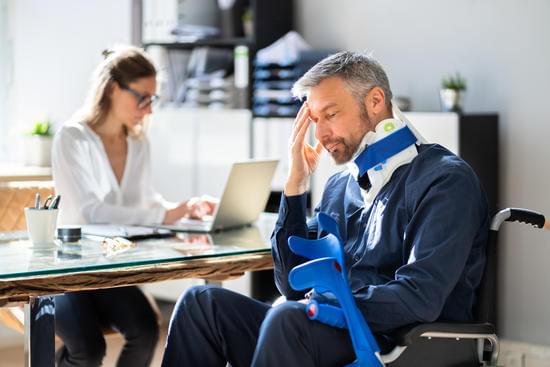Common Myths About Personal Injury Protection (PIP) in Auto Insurance

Personal Injury Protection (PIP) is a valuable part of auto insurance policies, particularly in states with no-fault insurance laws. Despite its essential role, PIP remains widely misunderstood, and a range of myths surround this important coverage type. These misconceptions often lead drivers to underestimate the value of PIP, misinterpret what it covers, or even neglect it altogether. Such misunderstandings can leave drivers financially vulnerable after an accident or unaware of how PIP can support their recovery.
This article aims to debunk common myths about Personal Injury Protection, explaining the truth behind these misconceptions to help drivers make informed decisions about their auto insurance. We’ll explore what PIP covers, its costs, who benefits from it, and why it’s essential to be well-informed about its role in your insurance coverage.
Table of Contents
- What is Personal Injury Protection (PIP)?
- Common Myths About PIP in Auto Insurance
- Myth #1: “PIP Only Covers Medical Bills”
- Myth #2: “PIP is Only Necessary in No-Fault States”
- Myth #3: “PIP and Health Insurance are the Same Thing”
- Myth #4: “If I’m a Careful Driver, I Don’t Need PIP”
- Myth #5: “PIP is Too Expensive for What it Offers”
- Myth #6: “PIP Doesn’t Cover Passengers”
- Myth #7: “PIP Claims Always Affect Insurance Premiums”
- Why PIP is Essential in Your Auto Insurance Policy
- How to Maximize Your PIP Coverage
- Conclusion
1. What is Personal Injury Protection (PIP)?
Personal Injury Protection (PIP) is a form of auto insurance coverage designed to cover medical expenses and other related costs after an accident, regardless of who is at fault. PIP goes beyond standard medical coverage, often including lost wages, rehabilitation costs, and essential services like childcare or household help if the policyholder cannot fulfill these tasks due to injuries. It’s typically mandatory in no-fault insurance states and optional in others, providing a financial safety net for drivers and passengers in the event of an accident.
2. Common Myths About PIP in Auto Insurance
Let’s examine some of the most common myths about Personal Injury Protection and uncover the truths behind them.
Myth #1: “PIP Only Covers Medical Bills”
Reality: While medical expenses make up a significant portion of what PIP covers, it also includes a wide range of other costs. PIP often covers:
- Lost Wages: If you’re unable to work due to accident-related injuries, PIP can compensate for your lost income.
- Rehabilitation Costs: PIP can pay for physical therapy or other rehabilitation services necessary for recovery.
- Essential Services: If you can’t perform daily tasks such as cleaning, cooking, or childcare, PIP can cover these expenses.
- Funeral Expenses: In the tragic event of a death due to an accident, PIP can help cover funeral costs.
The comprehensive nature of PIP can be invaluable for those who have dependents or rely on a steady income to cover daily living expenses.
Myth #2: “PIP is Only Necessary in No-Fault States”
Reality: While PIP is indeed mandatory in no-fault states, where each driver’s insurance covers their own expenses regardless of fault, it’s also available as optional coverage in other states.
In at-fault states, having PIP can still provide significant benefits, especially if you lack robust health insurance or if you’d like added security for income loss, rehabilitation, and essential services. Opting for PIP even in states where it’s not mandatory can protect you from the financial impact of a serious accident.
Myth #3: “PIP and Health Insurance are the Same Thing”
Reality: Although both PIP and health insurance cover medical expenses, they are not the same. PIP offers benefits beyond medical bills, including lost wages and essential service costs that health insurance often doesn’t cover. Here’s how they differ:
- No Deductibles or Co-Pays in PIP: PIP benefits generally pay out without deductibles, which can offer immediate financial relief.
- Covers Non-Medical Costs: PIP’s coverage extends beyond medical care to include income replacement, essential services, and more.
- Immediate Coverage: PIP is typically processed and paid out faster than health insurance claims, ensuring that you’re not waiting for compensation when you need it most.
By understanding these differences, drivers can see the added value PIP brings, especially when combined with health insurance.
Myth #4: “If I’m a Careful Driver, I Don’t Need PIP”
Reality: No matter how careful a driver you may be, accidents can still happen due to factors beyond your control, such as poor road conditions, weather, or another driver’s actions.
PIP coverage is particularly valuable in scenarios where an accident occurs unexpectedly. Since PIP offers coverage without regard to fault, it provides immediate financial protection, ensuring that you and your passengers are covered regardless of who caused the accident.
Myth #5: “PIP is Too Expensive for What it Offers”
Reality: The cost of PIP varies depending on the state, the level of coverage, and the individual’s driving history, but it is often reasonably priced when considering the range of benefits it provides.
PIP can be a cost-effective form of protection, especially when considering the potential expenses related to medical bills, lost wages, and household services after an accident. Without PIP, these costs could quickly become overwhelming, so it’s essential to weigh the coverage value against its price before dismissing it as “too expensive.”
Myth #6: “PIP Doesn’t Cover Passengers”
Reality: One of the benefits of PIP is that it generally covers not only the driver but also passengers involved in the accident. This means that friends or family members riding with you are protected under your PIP coverage, which can offer peace of mind if you frequently drive with others in the vehicle.
Myth #7: “PIP Claims Always Affect Insurance Premiums”
Reality: While any insurance claim can potentially impact premiums, a single PIP claim may not necessarily lead to an increase, especially in no-fault states where PIP claims are standard.
Insurance companies evaluate each case individually, and a PIP claim alone does not automatically mean higher premiums. Premium adjustments depend on factors such as the severity of the claim, your driving record, and the frequency of claims, among others.
3. Why PIP is Essential in Your Auto Insurance Policy
Having PIP in your auto insurance policy can provide a critical financial cushion after an accident. For those with limited health insurance or who rely on a steady income, PIP’s benefits offer immediate and tangible support. PIP is designed to alleviate the financial strain associated with accidents, allowing you to focus on recovery instead of financial concerns.
4. How to Maximize Your PIP Coverage
To get the most out of PIP, consider the following tips:
- Review Your Coverage Limits: Ensure that your PIP coverage limit matches your needs and expenses.
- Combine PIP with Health Insurance: If you have health insurance, consider how PIP can act as a supplemental layer for non-medical expenses.
- Adjust Deductibles If Available: Some policies may allow you to adjust PIP deductibles, balancing your premium and out-of-pocket costs.
- Consult Your Insurer: Ask questions about PIP benefits and scenarios to clarify how coverage applies in different situations.
5. Conclusion
Understanding Personal Injury Protection (PIP) and dispelling the myths surrounding it is crucial for making informed insurance decisions. PIP offers unique benefits that other forms of insurance may not cover, from lost wages to essential services and non-medical expenses. By recognizing the true value of PIP, drivers can ensure they have the necessary financial protection and peace of mind on the road.
Whether PIP is mandatory or optional in your state, its role in comprehensive auto insurance coverage is undeniable. Taking the time to understand PIP’s offerings and refuting common myths empowers you to tailor your insurance policy to suit your needs, helping you stay protected in the event of an accident.


